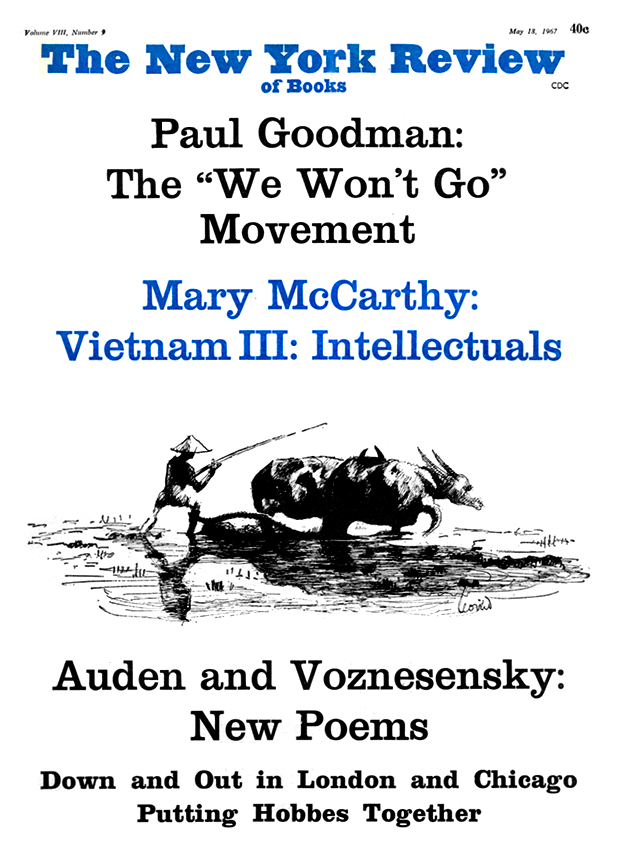In response to:
Blow-Up from the April 20, 1967 issue
To the Editors:
In her review of William Manchester’s The Death of a President [NYR, April 20] Elizabeth Hardwick quotes me as follows: “Arthur Schlesinger called it ‘the book of the Sixties’ and placed it above his own.” Miss Hardwick’s statement was based on an assertion by Mr. Manchester himself in a recent article in Look. According to Manchester in this article, my English publisher told him, “Arthur says it’s the book of the Sixties, his own included.” While as an historian I am doubtful of the propriety of attributing a direct quotation on, so to speak, third bounce, perhaps the etiquette is different among literary critics. In any case, it is easy to understand why Miss Hardwick was misled.
I do not know what my English publisher may or may not have said to Manchester in an effort to demonstrate an enthusiasm for his book; but I wish to state categorically that I never said to him anything of the sort quoted by Mr. Manchester. As an historian, I would find it impossible to call any book “the book of the Sixties” at a time when the Sixties were hardly half over; and, as an author, I am not given to running down my own books, especially in comparison with this one.
I might add that in the same deplorable piece Mr. Manchester quoted very partially and tendentiously from a memorandum I sent him about the first draft of his book. Since he brought up the matter himself, and since I cannot be sure that the editor of Look will publish the excerpts from the memorandum which I have sent him, perhaps the readers of the New York Review may be interested in passages which, in order to sustain his contention that I was the “most articulate champion” of his work, Mr. Manchester neglected to quote. For example:
Bill’s literary gifts, it seems to me, lie essentially in narrative and atmosphere; but his effects would be more powerful if his language were more austere. For my taste, some of the decoration is too lush and insistent and would be improved by rigorous editing. Worse, the narrative is too often interrupted by passages of sententious generalization. These passages are often dubious and often irrelevant….
The portrait of the Vice President (Lyndon Johnson) is fine when it sticks to facts but too often acquires an exaggerated symbolism—so much so that some critics may write that the unconscious argument of the book is that Johnson killed Kennedy(that is, that Johnson is an expression of the forces of violence and irrationality which ran rampant through his native state and were responsible for the tragedy of Dallas)…. For example, the deer hunt belongs in the book, but not as the lead; in its present position, it has the effect of defining the book as a conflict between New England and Texas, decency and vulgarity, Kennedy and Johnson.
I have not read the final version of Mr. Manchester’s book; but I trust that his handling of evidence in The Death of a President is more scrupulous than his representation to the readers of Look of the thrust of my memorandum about the first draft.
Arthur Schlesinger, Jr.
Graduate Center
The City University of New York
This Issue
May 18, 1967


